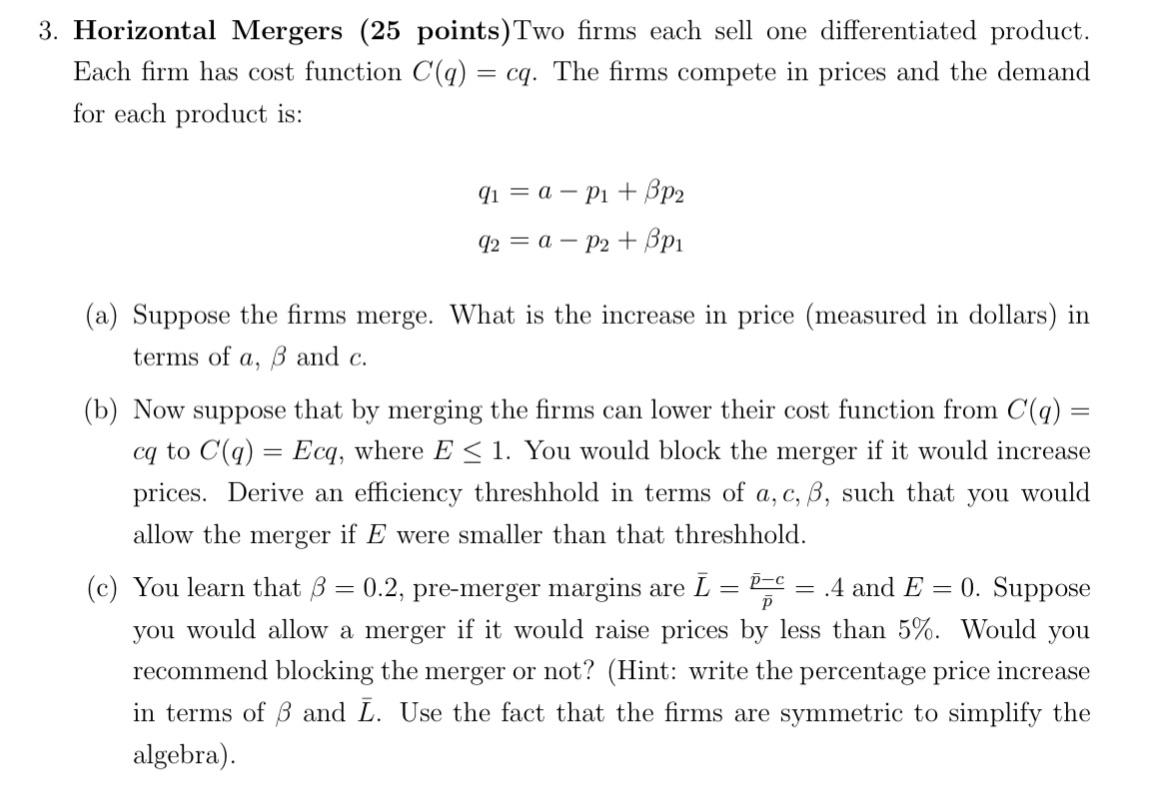Answered step by step
Verified Expert Solution
Question
1 Approved Answer
3. Horizontal Mergers (25 points) Two firms each sell one differentiated product. Each firm has cost function C(q) = cq. The firms compete in

3. Horizontal Mergers (25 points) Two firms each sell one differentiated product. Each firm has cost function C(q) = cq. The firms compete in prices and the demand for each product is: 91 api + Bp2 92a-P2+ Bp (a) Suppose the firms merge. What is the increase in price (measured in dollars) in terms of a, and c. (b) Now suppose that by merging the firms can lower their cost function from C(q) = cq to C(q) = Ecq, where E 1. You would block the merger if it would increase prices. Derive an efficiency threshhold in terms of a, c, , such that you would allow the merger if E were smaller than that threshhold. = p-c4 and E (c) You learn that 3 = 0.2, pre-merger margins are = 0. Suppose you would allow a merger if it would raise prices by less than 5%. Would you recommend blocking the merger or not? (Hint: write the percentage price increase in terms of 3 and L. Use the fact that the firms are symmetric to simplify the algebra).
Step by Step Solution
★★★★★
3.37 Rating (153 Votes )
There are 3 Steps involved in it
Step: 1
a ANS WER P 1 a q 1 P 2 P 2 a q 2 P 1 After the merger the two firms will charge the same price so P ...
Get Instant Access to Expert-Tailored Solutions
See step-by-step solutions with expert insights and AI powered tools for academic success
Step: 2

Step: 3

Ace Your Homework with AI
Get the answers you need in no time with our AI-driven, step-by-step assistance
Get Started


